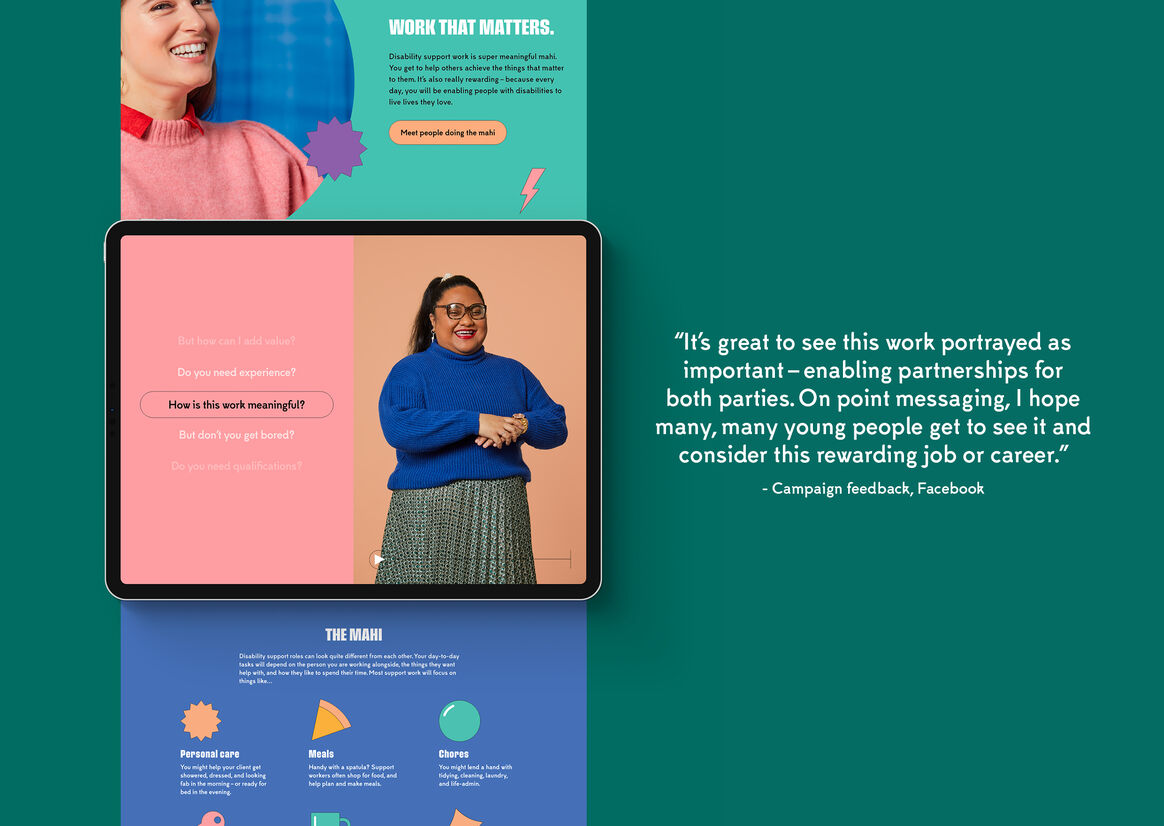Social Good Award
Curative 23 Meaningful Mahi
-
Pou Auaha / Creative Director
Logan Bradley
-
Ngā Kaimahi / Team Members
Red Nicholson, Eddy Royal, Jono Cole, Ashleigh Dallimore, Imogen Parry, Bel Hawkins, Georgia Hoskins-Smith -
Client
Te Pou










Description:
Meaningful Mahi has been established to address an urgent challenge for disabled people in Aotearoa: The disability support workforce is ageing, and doesn’t reflect the diversity of the communities it serves.
The Meaningful Mahi campaign aims to inspire a new generation of diverse young people to consider this work. It tells new stories about disabled people – and what supporting them really looks like.. The campaign dispels myths, breaks assumptions, and reduces fear and stigma. It seeks to show our audience that disability support work is flexible, rewarding, and truly meaningful.
The strategy, design, production and casting of this campaign has been disability-led at every stage of the process. This ensured that the insight gathering, strategic development, and creative processes were undertaken with the needs of the disability community at the centre. Throughout the project we have used the disability-rights mantra of ‘nothing about us without us’ as our guiding star.
Our interviews with disabled people and support workers revealed that finding good support staff is hard – for both disability service providers, and disabled people. Unfortunately, plenty of myths about support work persist: that the work is demanding, requires a qualification or experience to get started, and is largely focused on personal care.
We knew that if young people really knew what disability support work involves, they would find it hugely appealing. It offers many of the things that young people look for in a job – flexibility, meaning, autonomy, a sense of purpose and being valued.
To help address the misunderstandings and stereotypes surrounding support work, Meaningful Mahi showcases three real-life pairings of a disabled person and their support worker. These ‘matches’ reveal that support work is all about human connection, fun, laughter, and reciprocal support. These relatable young peopleshare the everyday things they love to do together; helping others see that this work is something they might enjoy too. .
This campaign is particularly targeted towards young people, particularly Māori and Pasifika. It connects disability support work with young people’s strengths and interests, making it feel like a viable, meaningful, attractive option for our audience.
While the campaign is fresh to market, early engagement suggests that the strategy is hitting the mark. Support workers and people with disabilities are sharing the campaign – adding weight to its messages with their own stories about how accurately it reflects their realities. We’re delighted with this initial response, and are hopeful that, over time, the campaign will actively reposition the way that young people think about disability, and the role of support workers.